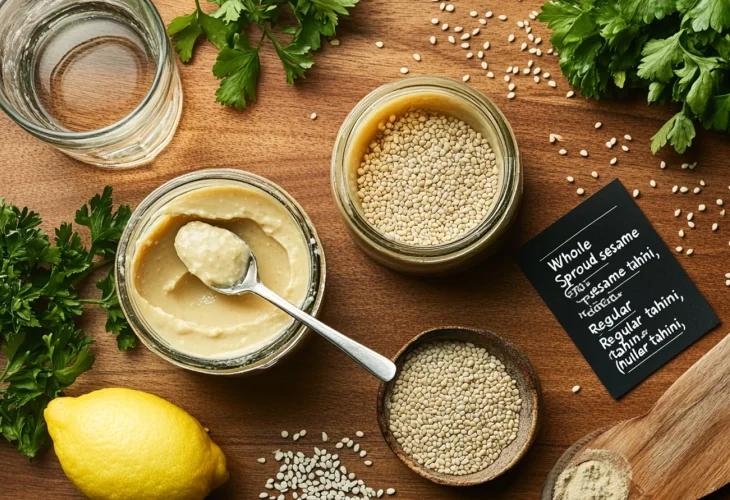Naturopathy and Natural Medicine
Tahini Explained: Its Benefits, Its Downsides, and How to Use It Wisely
A closer look at tahini’s strengths, its limitations, and how to make the most of it in your diet.

Tahini is a concentrated food with about 200 calories per tablespoon and requires good digestion. It should always be diluted with water.
Tahini is one of the most popular spreads in the kitchen, and many of us love it. It pairs well with spicy and salty dishes, as well as sweet ones, including cakes.
Nutritional Benefits of Tahini
Tahini contains minerals such as calcium, iron, magnesium, and zinc — all essential for muscle and bone health and for boosting the immune system. The fat in tahini is high-quality, supporting nerve function and improving mood through the production of serotonin.
A tablespoon of raw tahini contains about 200 calories. Because it is a concentrated food that requires strong digestion, tahini should always be diluted with water, and adding lemon is recommended to ease digestion and promote better absorption.
Tahini also contains vitamin E, a powerful antioxidant that helps protect the skin. In cases of mouth sores, applying the oil that separates from tahini may provide relief and assist healing.
Potential Downsides of Tahini
On the downside, tahini contains omega-6, a fatty acid that can increase inflammation in the body. Sesame is also a common allergen. Many people are sensitive or allergic to sesame and tahini without realizing it, not linking skin issues, itching, or digestive problems to tahini consumption.
Whole vs. Unhulled Tahini
Whole tahini is made from sesame seeds with the shells. These shells contain oxalic acid, which inhibits calcium and mineral absorption. This acid is broken down when sesame is soaked and even more so through sprouting.
Therefore, it is preferable to consume tahini made from non-whole sesame (without the shells). Although it contains fewer minerals, it does not contain oxalic acid, allowing for better absorption than whole tahini.
The best option is sprouted whole sesame tahini, ideally packaged in a glass jar, followed by regular tahini made from hulled sesame seeds, which is easier to digest.
Store-Bought Tahini Products
Halva is often considered a healthy snack, but unfortunately, it is made from tahini mixed with a large amount of sugar or artificial sweeteners and hydrogenated vegetable fat (margarine).
Pre-made tahini salads also tend to contain large amounts of refined vegetable fat and preservatives. For this reason, it is recommended to prepare tahini simply at home.
How Much Tahini Should You Consume?
Tahini is healthy when consumed in the right amount.
The recommended amount of tahini is up to two tablespoons per day, diluted with water and lemon to ease digestion and ensure good absorption.
It is not advisable to eat tahini in its raw, undiluted form.

